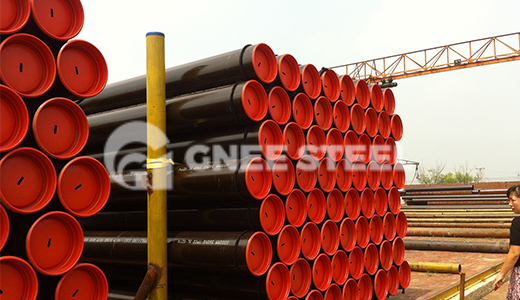1. Metal corrosion
Corrosion is the destructive erosion of metals and their surrounding environment caused by chemical or electrochemical reactions. Corrosion in a narrow sense refers to the corrosion of metals; corrosion in a broad sense refers to the interaction between chemical or electrochemical materials and the environment, resulting in the destruction of material functions. The basic mechanism of steel corrosion is shown in Figure 1. Its essence is the oxidation process of metal elements forming compounds.
The corrosion of metal refers to the damage caused by chemical changes, electrochemical changes or physical dissolution of the metal and the external surrounding medium. The corrosion of buried oil pipelines is divided into external corrosion and internal corrosion.
Internal corrosion in pipelines is caused by the corrosive components contained in the medium transported by pipelines. It is the main form of pipeline corrosion and is mostly concentrated in low-lying water accumulation areas, elbows at the gas-liquid interface, etc. Corrosion in pipelines includes multi-phase flow erosion and corrosion, as well as gas corrosion, etc.
External corrosion of pipelines includes stray current corrosion, soil environment corrosion, microbial corrosion, erosion corrosion, etc. According to the basic characteristics of metal damage, it can be divided into overall corrosion and local corrosion.

2. Internal corrosion of oil pipelines
Petroleum products contain a large amount of carbon dioxide, dissolved salts and hydrogen sulfide, which can easily react chemically with internal pipelines during transportation. Especially in the later stages of oil field development, due to water injection mining, the water content of the transportation medium increases, thus intensifying the internal stress of the pipelines. of corrosion.
Carbon dioxide corrosion is affected by many factors, including carbon dioxide partial pressure, temperature, pH value, medium flow rate, carbonate scale, wax effect, etc. An important influence on carbon dioxide corrosion is the thermal movement of carbon dioxide in the water phase.
The hydrogen sulfide often contained in oil and gas will not cause corrosion to pipelines by itself, but when it encounters water in the transportation medium, it will ionize, causing electrochemical corrosion reactions in the pipelines.
.jpg)
3. External corrosion of oil pipelines
Some pipelines are often exposed in the open air and exposed to wind and rain, and the transported oil contains sulfur and acidic substances, making the pipelines prone to external corrosion. The external corrosion of pipelines mainly includes oxygen absorption corrosion of steel, acid corrosion caused by carbon dioxide caused by atmospheric precipitation, extremely acidic sulfide hydrogen evolution corrosion on the pipeline surface caused by acid rain, bacterial corrosion caused by sulfate-metabolizing bacteria on the pipeline surface, among which oxygen corrosion is the most common. The most serious.

.jpg)